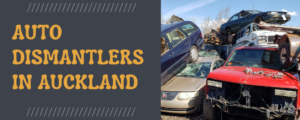Recyclability is a well-kept secret in the automotive industry. Around 80% of the parts in your car will have a second life after it’s retired from service, thanks to wrecking yards, also known as Auto dismantlers. Auto dismantlers also play an important role in the safe and proper disposal of hazardous coolants, oils, and other fluids from cars. A dismantler is a professional who disassembles damaged or old cars in order to recover usable parts. Dismantlers take great care not to damage any of the vehicle’s valuable parts as they take apart the vehicle.
Auto dismantlers buy, sell, or deal in vehicles that can’t be repaired in order to dismantle them. The salvage process is the first thing an auto wrecker does. A thorough examination is required to determine which parts are worth saving, and this can include anything from handles to cylinder heads to body panels to suspension pieces. Parts and materials from previously owned automobiles can be included in this category, whether in whole or in part. Parts that are still usable will be refurbished, sold, or recycled.
Before beginning, an auto wrecker should identify all applicable regulatory requirements and obtain all land use approvals and environmental permits. Local government approval may be required for the business’s proposed location. Painting, grinding, sandblasting, and other emissions may require a DEQ air quality permit, depending on the processes. A stormwater management permit may also be required. Permit types that may be required can be found in the section titled “Regulatory Requirements.”.

Best Practice for Auto Dismantlers
These methods can help auto wreckers lessen their negative effects on the environment and the need for government oversight.
Layout and design for a business
Everything should be done on a sealed concrete pad or another impervious surface, and under a roof or in a building.
Taking care of incoming vehicles
Businesses should inspect incoming vehicles, as DEQ suggests, in order to identify and address environmental concerns.
Fluids used in automobiles
The DEQ recommends that auto dismantlers collect all vehicle fluids in non-damaging containers that will not be damaged by the fluid. Captured fluids should be covered, stored, and recycled, or disposed of appropriately.
Crashing of vehicles
During the processing of incoming vehicles, fluids are removed, but the vehicle may still contain some residual fluids. Crushing should be done on an impervious surface inside a building or under a roof to help prevent stormwater pollution and contain spills.
Training
Auto dismantlers should train all of their employees on how to identify and clean up spills as well as release and manage waste resulting from these activities if they are adequately trained. There are many environmental and human health risks associated with the products, materials, and wastes generated by auto dismantlers’ business activities.
Do-it-yourself and full-service wreckers are the two main types of auto dismantlers. In order to do it yourself, you’ll need to pack your bags, get into a sea of junk cars, and dig for the widgets you need. It goes without saying that you are expected to be knowledgeable in your field. To make some extra cash and need genuine used parts, you can sell your junk car to Bamian Auto Parts.

